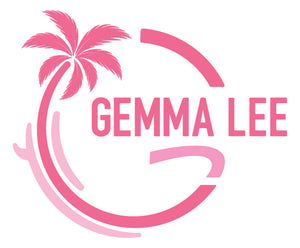Lessons I've Learned from Running a Sustainable Surf Brand

Navigating the fashion industry has taught me some invaluable lessons about sustainability, ethics, and the importance of standing by your principles. Fashion has a massive global impact—both positive and negative. Here’s what I’ve learned:
Ethics Over Easy
When I first started Gemma Lee, the temptation to chose the 'cheapest' manufacturer was immense. Everyone told me to chase the lowest prices, but I couldn't bear the thought of not knowing the working conditions of the people making my garments. If there was even the slightest risk of exploitation, I couldn’t take that chance. After much research, I found a factory in China that met my high standards for worker care. The factory is audited by a third-party for social compliance and is WRAP-certified, ensuring fair treatment, safe working conditions, and environmental responsibility.
Fast Fashion Isn’t Worth the Cost
The fashion industry often races to the bottom, producing cheaper and cheaper clothes. But this mindset comes at a steep cost. As consumers, if we're not paying the true price for our clothes, someone else is—and it’s often the workers in developing countries who are exploited. The collapse of the Rana Plaza factory in 2013 is a tragic reminder of the dangers workers face to meet global brands' demands. Over 1,100 people lost their lives in an entirely preventable disaster. It's essential to question where and how our clothes are made.
Transparency is Key
Fashion Revolution Week emerged from the Rana Plaza tragedy, urging consumers to demand transparency from brands. Knowing the full story behind our garments—from the materials used to the conditions they were made in—is crucial. This aligns with one of my core values as a designer. The more we ask brands for transparency, the more they’ll need to provide it. I urge consumers to use their purchasing power wisely and question who made their clothes.
Stay True to Your Values
A conversation with a businessman last year really stuck with me. He shared a harrowing story about visiting a sweatshop in the Philippines, where the conditions were so appalling that workers became addicted to the toxic fumes from glue used in manufacturing. His advice was clear: never compromise on your values. The pressure to cut corners will always be there, but if you stand firm, you can be part of the wave of change.
In Conclusion, we, as consumers, have the power to reshape the fashion industry by making informed, ethical choices. As Emma Watson once said, “We have so much power to change the world by just being careful in what we buy.” Let's demand better from brands and build a more transparent, ethical industry together.



